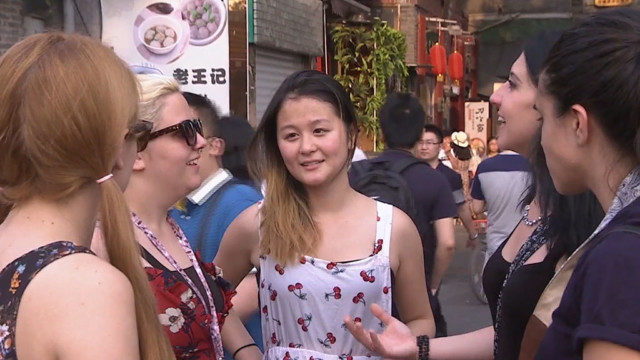Large numbers of foreign-born ethically-Chinese people have been moving to China in recent years. While they often speak the language, many are finding it surprisingly difficult to settle-in.
CGTN’S Roee Ruttenberg reports from Beijing.
Victor Zheng, an education consultant, is what’s known as a Huayi – a foreign-born ethnically-Chinese person, now living in China. Last year, Zheng moved from Washington, D.C. to Beijing – for the second time. He speaks fluent Mandarin, but said fitting in here has been a challenge.
“It’s only in China when I am fully aware that I’m a Huayi. I’m made aware of it every day, at every hour,” Zheng said. “Whenever I go on the media, everyone will say: oh look, it’s the banana, or oh look, it’s just another Huayi trying to take our money, or people will point out that it’s a traitor.”
Zheng is now working on a project documenting those experiences and trying to better understand the social attitudes that shape them.
Over the last decade, a growing number of young Huayi began moving to China. Many said they were drawn by economic opportunity in the country but quickly found — they were too foreign to be considered Chinese.
Most end up in major cities, where they blend-in with the native population, or with foreigners, or often with others like themselves whose identity falls somewhere in between.
Joana Xu is a student, and her parents moved to Portugal from China before she was born. She recently moved back.
“You can always feel comfortable between your so-called friends,” Xu said.
“But outside of it, if they can find it strange somehow, and they find it different, they’re going to say something about it. Not to me, but between them.”
“I just want people to treat each other better, to treat each other with more respect, and to be able to at least sympathize with the other side,” Zheng said.
 CGTN America
CGTN America

